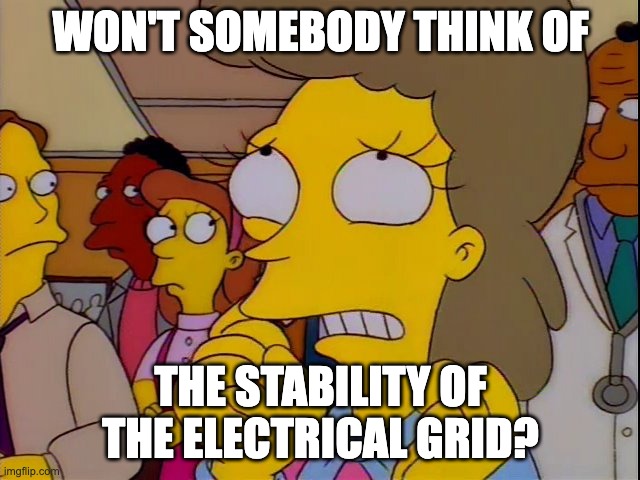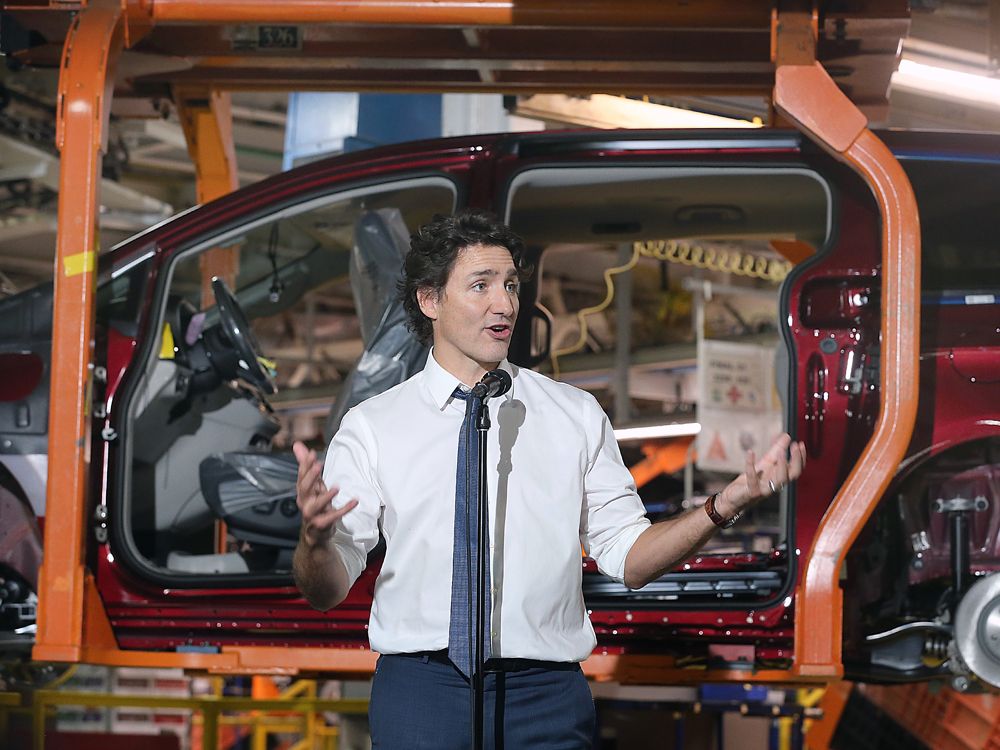Not sure if you intended it, but your wording sounds rather harsh and accusatory. I may be misreading, and you were just aiming to cover all the points of concern in order to get as much information as possible out of a hypothetical Tesla responseOr "Can you help justify the value proposition to investors that have funded well over $2B+ as an investment in an exclusive Supercharger network only to seemingly be opened to anyone willing to adopt the NACS? How do you convince current owners that the extra traffic won't compromise the experience on busy weekends and that investors are getting a fair ROI?"
To address some of your thoughts, from both a shareholder and an owner perspective, here's what I'm thinking:
- Regarding ROI, I sortof disagree with your wording of "investors...funded well over $2B+...in an exclusive Supercharer network...", but there's probably a way of thinking that makes that technically correct, so I really can't argue that point. But:
- Investors have already seen a big return on that investment because Tesla sold more cars as a result, and therefore generated more profit and company value for investors. How many extra cars did Tesla sell, and how much profit generated because they built the Supercharger network? If the profit per vehicle is on the order of $10K, then 200,000 "extra" cars sold provides the profit to cover that entire $2B investment. I'd propose that the supercharger network has resulted in far more than 200,000 "extra" sales. And more sales also means more economy of scale and more fully-utilized factories, resulting in additional cost savings and investor value. Significant ROI secured!
- Additionally, these deals to share the Supercharger network seem to have caused the stock price to surge considerably, creating obvious and direct value for shareholders. There have been other catalysts, but since the May 25 announcement by Ford, TSLA is up roughly $90 per share. With roughly 3 billion shares, that is a gain for investors of $270 billion in a month and a half. Certainly much more than $2B of that rise can be attributed to the deals with other automakers to share the network. Even more investor value returned!
- Side note: I absolutely hate the "short term thinking" that the stock market forces on companies, with many driven to increase near-term share-holder value with decisions that neglect to invest/plan for years down the road. But, for anybody that thinks that is what Tesla has done here, none of those negative consequences can possibly hit until at least 2024 (when other cars can use an adapter to Supercharge)...so there's at least 6 months window to sell shares before any related negatives could hit the stock.
- Any cars that do eventually charge at a Supercharger will be paying Tesla one way or another, which should also be a positive on company revenues.
- We don't know if Ford/GM/etc. paid Tesla or will be paying Tesla for some relative share of the Supercharger network build cost...but that's definitely a possibility.
- These deals might generate more Tesla sales...if we believe Tesla has a superior product. There's bound to be some cross-shopping at superchargers as owners (or their passenger friends/family) of more expensive and/or slower charging vehicles can directly compare their cars to a Tesla, and perhaps additional Tesla sales will be the result.
- "exclusive Supercharger network"
- Elon and Tesla have said, for as long as I can remember, that they'd be open to other manufactureres joining the Supercharger network...as long as they contributed some corresponding value to the cost and as long as the cars could charge at some minimum threshold. So, nobody should have expected the supercharger network to be exclusive forever
- "How do you convice current owners that the extra traffic won't compromise the experience on busy weekends?"
- Isn't the Supercharger network already relatvely open/shared and using a universal port in Europe? Is overcrowding an issue there?
- Certainly, there might be some impact, at a few spots, at busy times.
- But, as the other networks add or convert to NACS plugs, some Tesla owners might occasionally divert to those other networks, spreading the load
- Likewise, many of the "other" cars will also continue to use the other charge networks for various reasons, keeping the load spread
- And, as I understand it, older supercharger stations might not work with other vehicles (via adapter or otherwise). So, some areas or stalls might remain exclusively Tesla (which can be used strategically), or they might need to be upgraded anyway...which would increase the throughput of that site.
- None of this will start until 2024, when other manufacturers start using adapters, which will likely be slowly manufactured and distributed. And then, another leg of usage will start in 2025 when other manufacturers might have native NACS plugs. So there will be a ramp-up in "additional" usage, which Tesla will see, and have time to compensate with additional supercharger builds.
- And, those other cars are gong to be a small fraction of the Supercharging population for some time to come.
- In recent quarters, Tesla's are still 60+% of North American EV sales. In past quarters, Tesla's share was even higher. And there are a good number of EV's on the road (Leafs, Bolts, etc.) that will probably never be eligible to supercharge because they can't support some minimum specs (charge port type, charging speed, etc.). So adding all that up, I suspect cars that CAN use North American superchargers will be 80-90% Teslas for at least a few years. And, given that many of the "other" cars are lower range and slower charging, they will be less motivated to take road trips, even with Supercharger's being an option. So, even more of the supercharger usage will be going to Teslas. The additional usage from "other" cars is going to be a small fraction of Tesla usage, so I think impact would be rare, and upgrades can be made as needed.
- (semi-joking) Tesla owners can always whip out their referral codes and hand it out to the "other" owners at a supercharger. No use giving your referral code to another Tesla owner...but owners of "other" cars who are seeing how much better a Supercharger is compared to their previous charging site might be open to the idea that a Tesla car might be better too...
*Edited to add the note/question (bullet 3.1) about Europe.
Last edited:




